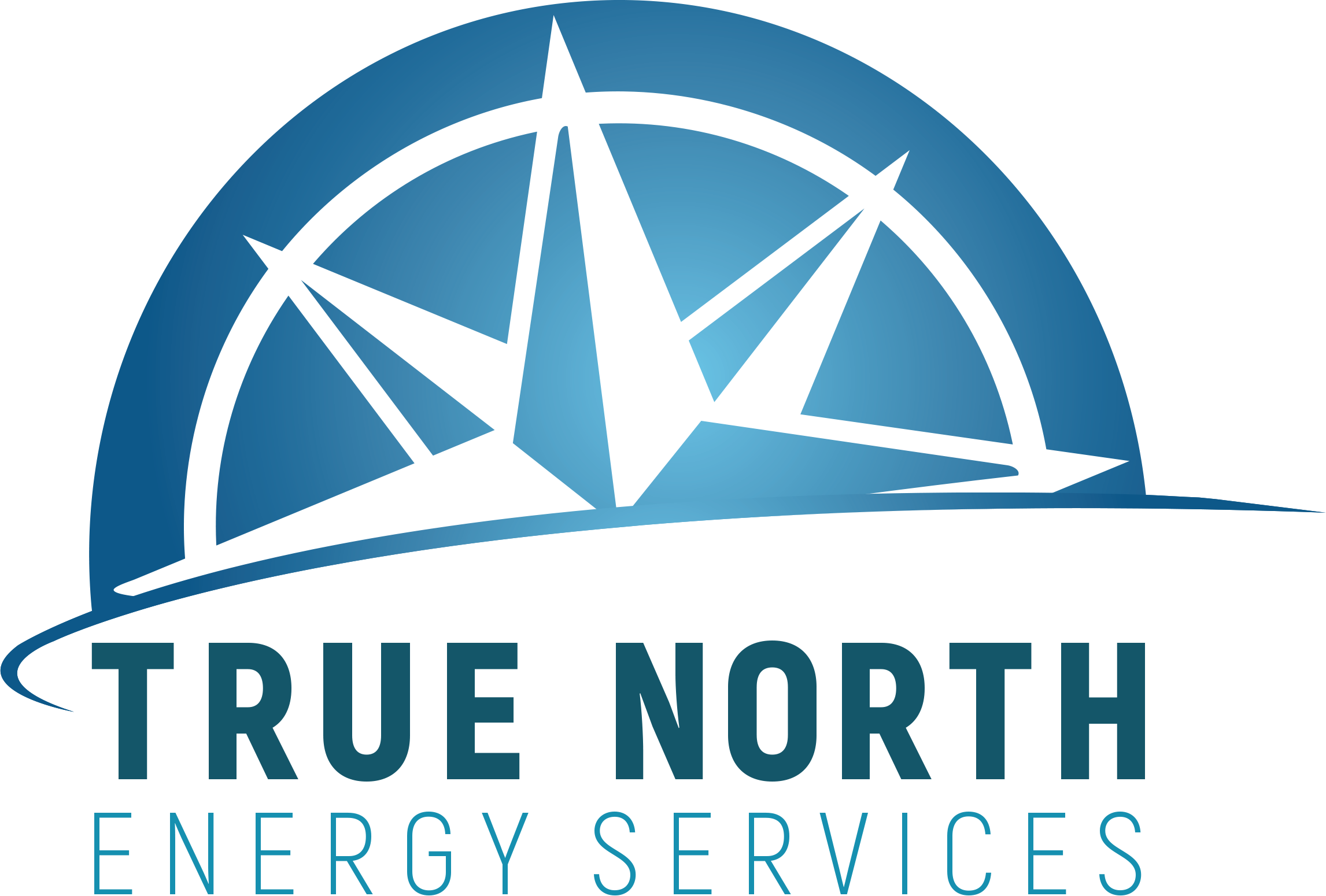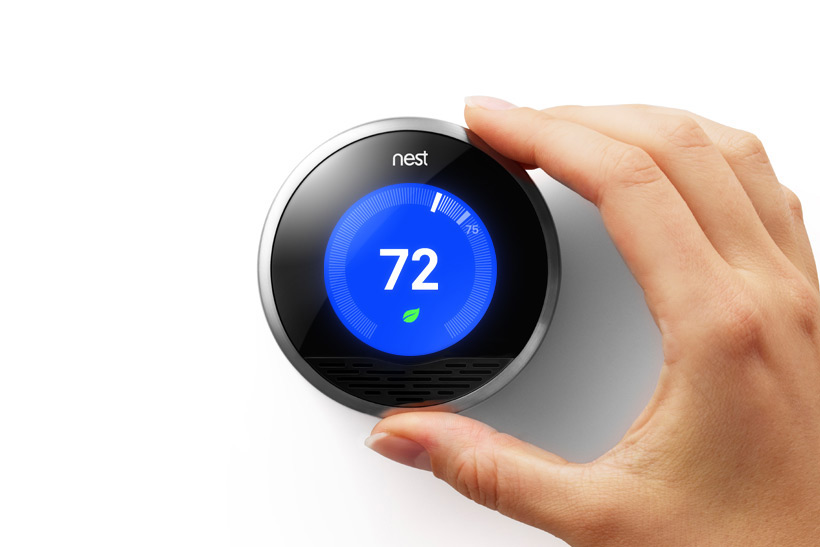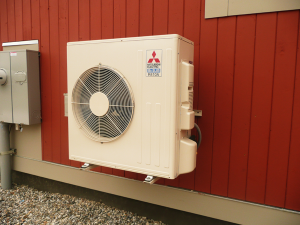Cord Wood vs. Wood Pellets
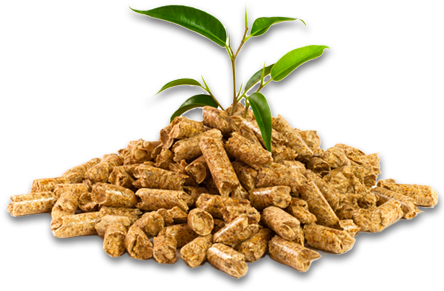
Heating with Cord Wood vs. Wood Pellets
Deciding whether to heat with wood or pellets can be either a simple decision or a complicated one depending on where you are in the process. The chart below breaks down the benefits of each to help you fine tune your decision.
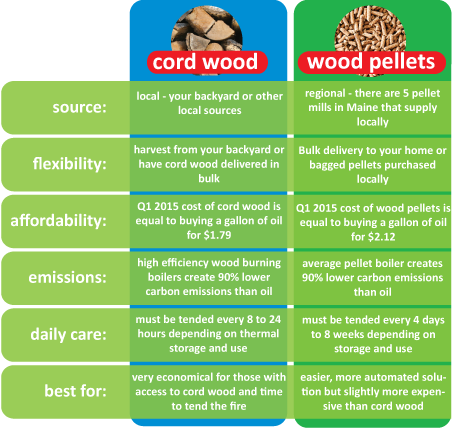
The allure of cord wood is in its simplicity.
Because it’s such a simple product, there are thousands of suppliers, and you yourself can go into your wood lot and harvest your heat. In fact, a decently insulated home with a high efficiency wood boiler should be able to supply 100% of its home energy needs with a wood lot as small as 3 acres. Cord wood also offers its users the ability to choose between cutting their own, to ordering cut split and kiln dried wood delivered.
Pellet Fuel has some distinct advantages over cord wood.
Pellet Fuels are derived from a lower quality tree than is required to produce cord wood. Scrap from the forest products industry produces some of our pellets, but most comes from low grade pulp wood. The low grade wood is then turned into sawdust, dried, and pelletized. You now have a fuel that is about 2.5 x denser than firewood, which makes it easier to transport. Pellet fuel has moisture content around 7%, where as the best seasoned firewood is going to be 20%, that makes pellet fuel easier to burn, and with lower emissions. Because pellet fuel has been de-barked, it has significantly less ash than cord wood. And, because the fuel is a uniform size, we can meter the fuel in stoves and boilers, to burn only what we need.
Pellet Fuel is a sustainable resource
There are currently 5 pellet mills in Maine, with many more on the way, so there is no shortage of supply. Maine Forest service studies show that the state could supply 10% of our home heating needs easily from current supply of wood. With changes in forest management practices, 100% of Maine’s current heating demand can be met with pellets. Pellet fuels can be bulk delivered into hoppers just like oil. When delivered this way, pellets currently cost $240 a ton, which is between 10% and 20% more expensive than cord wood.
How to Decide between Cord Wood and Pellets
To decide between cord wood and pellet fuel, ask yourself; how much wood do you really have the time and interest to handle. If you have a wood lot, and the inclination to harvest your own firewood, then cord wood is for you. If you have a larger home, and you need to burn 8 cords of firewood, and you lead a busy life, you’re probably better suited to pellet fuel.
True North Energy Services Cord Wood and Pellet Solutions
While pellet and wood stoves are wonderful ways to heat your home, True North Energy Services no longer offers those solutions. Instead we focus on wood and pellet boilers which are a complete replacement for fossil fuel heating systems. Explore our wood boiler and pellet boiler pages to learn more or contact us to discuss which option makes the most sense for you home.
